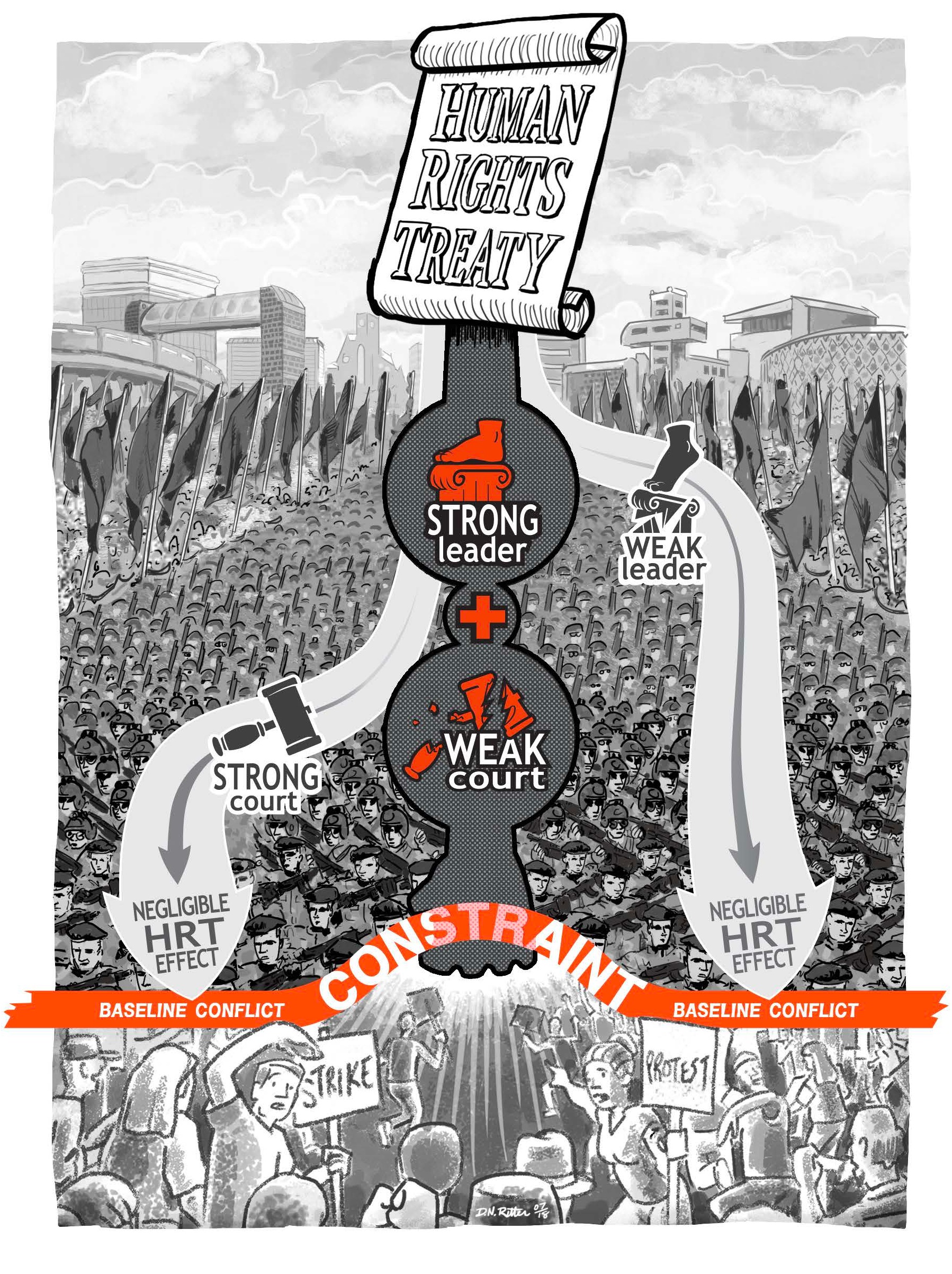Courtenay Conrad and I have written a book titled Contentious Compliance: Dissent and Repression under International Human Rights Law.
The full manuscript is currently in print! Order it here.
This page provides information about the content of the book and its applications to current events. Please feel free to email myself or Courtenay if you have any questions about the project.
The book cover was designed and illustrated by Darick Ritter.
Abstract
We use the tools of social science to investigate the effect of international human rights treaties on domestic conflict. The main point of the book—our most important contribution—is to point out that international human rights treaties work. They improve human rights outcomes. Not all the time, and not with perfect certainty. But unlike many who claim that international human rights law has failed, we argue that under certain conditions—namely when political leaders are secure in power and domestic courts are relatively poor at constraining the executive—human rights treaties alter the structure of the strategic conflict between political authorities and potential dissidents, significantly decreasing government repression and increasing the likelihood of mobilized dissent.
Here’s a press release summarizing the book and its findings.
Argument
Human rights treaties will have the largest effect in on repression and dissent when conflict is expected to be highest: when a leader has a high expected value for retaining power and the domestic court is relatively weak in relation to the executive. Darick Ritter designed a figure for the book illustrating the hypotheses that derive from our theory.
Articles
Some (not all!) of the theoretical and empirical insights of the book have been previously published in peer-reviewed political science journals.
In the first, we find that leaders who are secure in power are more likely to be constrained by international human rights treaties than leaders who are comparatively more vulnerable to removal.
In the second, we find that human rights treaty-obligated states with secure leaders are also more likely to experience popular dissent activities than those with vulnerable leaders, provided domestic courts are not sufficiently powerful to do the work of constraint without the treaty.
Blog post applying this research to Trump's proposed "moratorium" on international treaties for the Washington Post's Monkey Cage
Applications
Honorable Mention for the 2020 ISA Best Book in International Law
Reviews:
Hyde, Susan D. and Elizabeth Saunders. “Recapturing Regime Type in International Relations: Leaders, Institutions, and Agency Space”, Forthcoming (Spring 2020), International Organization
Awards & Reviews
Here is a Dropbox folder with all empirical and theoretical replication files for the book and the additional tests in the print and online appendices.


